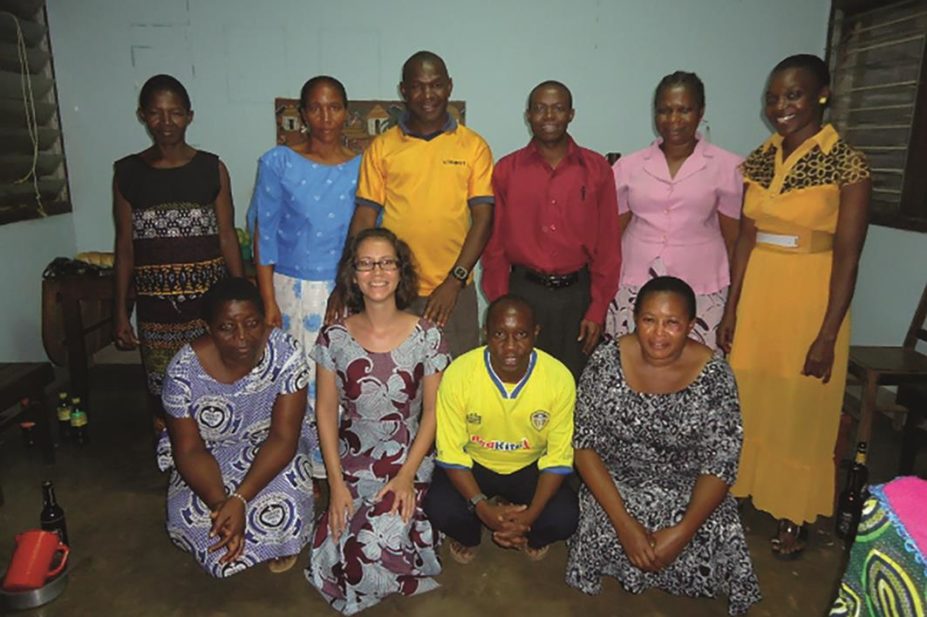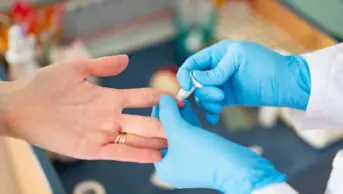
Claire Liew
Why did you decide to practise pharmacy in Tanzania and how did you get involved with Voluntary Service Overseas (VSO)?
After nine years of working mostly in London hospitals, I decided it was time for a new challenge. I had been to VSO open days in the past and supported the principle of fighting poverty sustainably by living and working alongside local professionals. The application process was quick. Within three months I had been to VSO assessment days, interviews and residential courses and was offered a role in Tanzania as a member of a “hospital strengthening team” at St Walburg’s Hospital, Nyangao. I was to work with two other VSO volunteers, a biomedical scientist and a paediatrician, to improve services at the 220-bed faith-based hospital.
Pharmacy in Tanzania
The pharmacy profession in Tanzania has limited capacity. The three universities that offer a four-year Bachelor in Pharmacy qualification each has a graduating class size of around 40 students. Demand for trained professionals far exceeds supply and as a result, qualified pharmacists are drawn to the public sector in urban areas where salaries are higher. Only 2% of pharmacists work in faith-based health facilities. The most senior member of staff in a hospital pharmacy is most often a pharmacy technician whose three-year diploma focuses on supply chain, calculations and basic clinical pharmacy. The rest of the pharmacy staff are made up of medical attendants who also rotate through X-ray, laboratory, theatre and the wards with little specialist training. Latest statistics show there are only 700 pharmacists in Tanzania with 0.01–1.37 pharmacists per 10,000 people. As a result, most doctors do not work with pharmacists and lack an understanding of the extent of their role.
What were your roles and responsibilities in Tanzania?
Like most hospitals in Tanzania, St Walburg’s was facing financial difficulty because many of its European benefactors had withdrawn their donations. One solution was to open a second pharmacy with a revolving monetary fund where drugs and medical supplies could be bought privately then sold to patients if they were unavailable in the main pharmacy. This would provide income for St Walburg’s and, more importantly, stock shortages in the hospital could be anticipated and avoided.
My role was to manage the new Raphael Pharmacy from the initial planning and building stages through to ordering the first drugs, training pharmacy staff, and managing stock and finances. Unlike the main pharmacy, which was restricted to obtaining provisions through the government supply chain, Raphael Pharmacy could purchase medicines from any supplier in the country, roads and weather permitting. Lorries would often arrive at 7am after a 12-hour drive from Dar Es Salaam, the largest and richest city in Tanzania, carrying a much needed cargo of drugs, syringes, catheters and dressings.
Throughout my placement, I held teaching sessions for pharmacy, nursing and clinical staff about safe prescribing and disease management. I also helped the pharmacy team members increase their drug knowledge, helping them feel more confident at identifying poor prescribing.
What did you learn from the experience?
I learnt to compromise and choose my battles — advice was not necessarily wanted or appreciated, even if it was supported by evidence and guidelines. In the hierarchical healthcare system, doctors were never challenged by nurses or pharmacists so I had to save my interventions for occasions when the life of a patient was truly at risk. Additionally, I was restricted by limited technology — it is difficult to advise on gentamicin dosing or drug monitoring, for example, when the laboratory does not have the capacity to measure antibiotic levels or electrolytes.
What advice would you give to another pharmacist who wants to volunteer with a non-governmental organisation (NGO)?
It is important to acknowledge that there are certain challenges and compromises, both in a professional and a personal sense, and working abroad will not fit with everyone’s life and career plans. However, I strongly encourage others to give it a go — the experience can enhance your CV and you will acquire a wide range of transferable skills. You get the opportunity to live and work in a completely different culture and maybe you will learn a new language, be taught to kill and pluck a chicken, or take part in local wedding celebrations as the guest of honour. Those who are keen should consider what type of work they are interested in and choose an NGO accordingly.
What is next for you?
I am currently working as a locum at the Princess Royal University Hospital in Orpington, Kent. My work in Tanzania has given me a renewed respect and appreciation for the NHS. The number and variety of specialities within the healthcare system amazes me, and I enjoy working as part of a team that helps patients without expecting personal rewards. However, I think the development work bug may have taken hold. I would jump at the chance to help in the current Ebola crisis with the UK International Emergency Medical Register or to work on a project with Medecins Sans Frontieres.
For more on Claire Liew’s experiences in Tanzania, visit her blog: Time Out in Tanzania.


